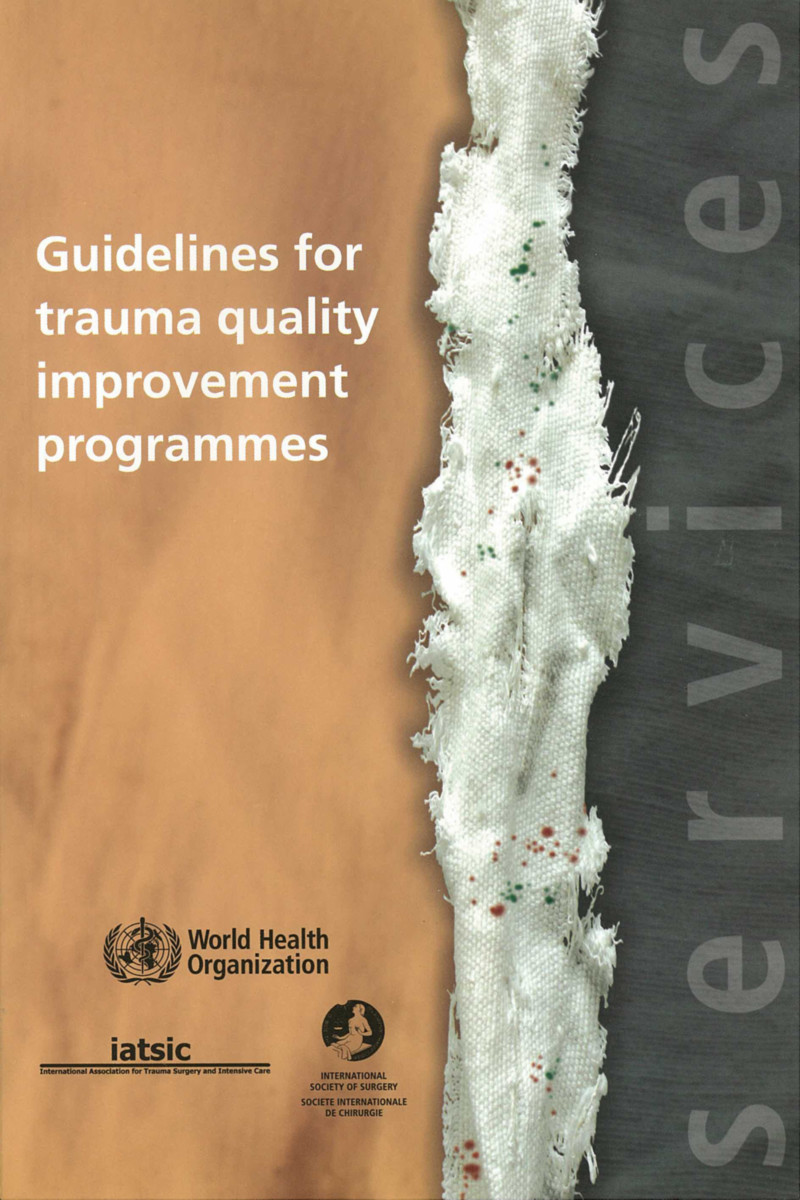Guidelines for Trauma Quality Improvement Programmes
- Publisher
World Health Organization - Published
1st September 2009 - ISBN 9789241597746
- Language English
- Pages 112 pp.
- Size 6.25" x 9.5"
- Images tables
In order to promote greater implementation of effective, affordable and sustainable trauma systems globally, the World Health Organization and the International Association for Trauma Surgery and Intensive Care have worked collaboratively to produce these guidelines on trauma quality improvement. The response to the growing problem of injury needs to include the improvement of care of the injured. Quality improvement (QI) programs offer an affordable and sustainable means to implement such improvements. These programs enable health care institutions to better monitor trauma care services, better detect problems in care, and more effectively enact and evaluate corrective measures targeted at these problems.
The goal of this publication is to give guidance on ways in which health care institutions globally can implement QI programs oriented to strengthening care of the injured. This guidance is intended to be universally applicable to all countries, no matter what their economic level.
These guidelines provide basic definitions and an overview of the field of QI, so that those not familiar with this field will have a working knowledge of it. Evidence of the benefit of QI in general and trauma QI in particular is then laid out. The main part of the publication reviews the most common methods of trauma QI, written in a how-do-to fashion. This covers a wide range of techniques. The first two of these are especially emphasized as ways in which to strengthen trauma QI in the setting of low-income and middle-income countries.
World Health Organization
World Health Organization is a Specialized Agency of the United Nations, charged to act as the world's directing and coordinating authority on questions of human health. It is responsible for providing leadership on global health matters, shaping the health research agenda, setting norms and standards, articulating evidence-based policy options, providing technical support to countries, and monitoring and assessing health trends.


